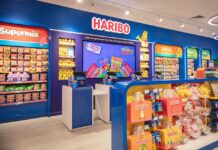New research from Wunderkind, the leading performance marketing channel that scales one-to-one messages for retailers and brands, has found that despite being in the midst of a period of major economic volatility, sustainability and CSR initiatives remain key considerations for both retail marketers and consumers.
Original research of over 100 senior retail marketing leaders in Wunderkind’s ‘CMO State of the Union’ report found that many are experiencing sustained demand to address wide-reaching external issues such as social justice, diversity, and sustainability within both brand messaging and across overarching company policy.
Among the retailers polled, 37% said diversity, equity, and inclusion (DE&I) has the most far-reaching impact on their consumer marketing efforts, while a third identified social causes (33%) as a key factor in directing their marketing team’s approach. A further third (32%) said environmental issues remain a key consideration in their brand communications strategies and marketing campaigns, rising to 50% of executives who cited environmental factors as one of their top pressures.
The demand for sustainable shopping is also growing among consumers, becoming an increasingly important factor in their buying decisions, despite ongoing cost-of-living concerns. While the recent COP27 Summit put sustainability front and centre of consumers’ psyches, a poll by Zurich’s Youth Against Carbon initiative suggests the cost-of-living crisis is forcing consumers to make less sustainable choices as prices soar. However, while it said 59% of shoppers have been forced to choose less sustainable but cheaper options as prices have risen, they do still want to make greener choices. Zurich’s study also found that 74% of those polled want the government to take steps to make sustainable behaviour and products more cost-effective so they don’t have to choose between prices and the planet.
Recent research of over 2,000 UK shoppers by Centra showed key brand values, including companies green credentials and how true retailers are to their brand meaning, are emerging as growing consideration factors when making purchasing decisions. Almost a third (29%) said sustainability was a key consideration, with many saying retailers need to care about the planet as well as profit to win their custom. Meanwhile, a further quarter (25%) said authenticity — defined in this instance as where the brand lives up to its stated values — would also impact their buying decision.
On top of actually incorporating sustainable practices and installing green policies, there comes an additional challenge to businesses: how to effectively showcase this good work to customers. Sharing on social media can, to an extent, play a role in spreading the message, but pushing comms out via owned channels — email and text, for example — should be central to any marketing strategy.
Wulfric Light-Wilkinson, General Manager International at Wunderkind, said:
“Today’s retail landscape is dynamic and constantly shifting. Not only do brands have to keep on top of emerging macro- and micro-trends, they also need to take into account consumer demands and their evolving shopping behaviours if they are to thrive. Now, more than ever, brands must be more than just their products. They have to be socially and ethically conscious, take steps to minimise the impact of their supply chains on the environment, and truly live their values.
“Most retailers have launched initiatives to address brand perception and sustainability but they need to raise awareness of their efforts through using owned channels to speak directly to their customers. Communicating effectively through these channels, such as email and text, is critical to creating meaningful personalised relationships that influence buying decisions and build lasting brand loyalty and trust.”






















